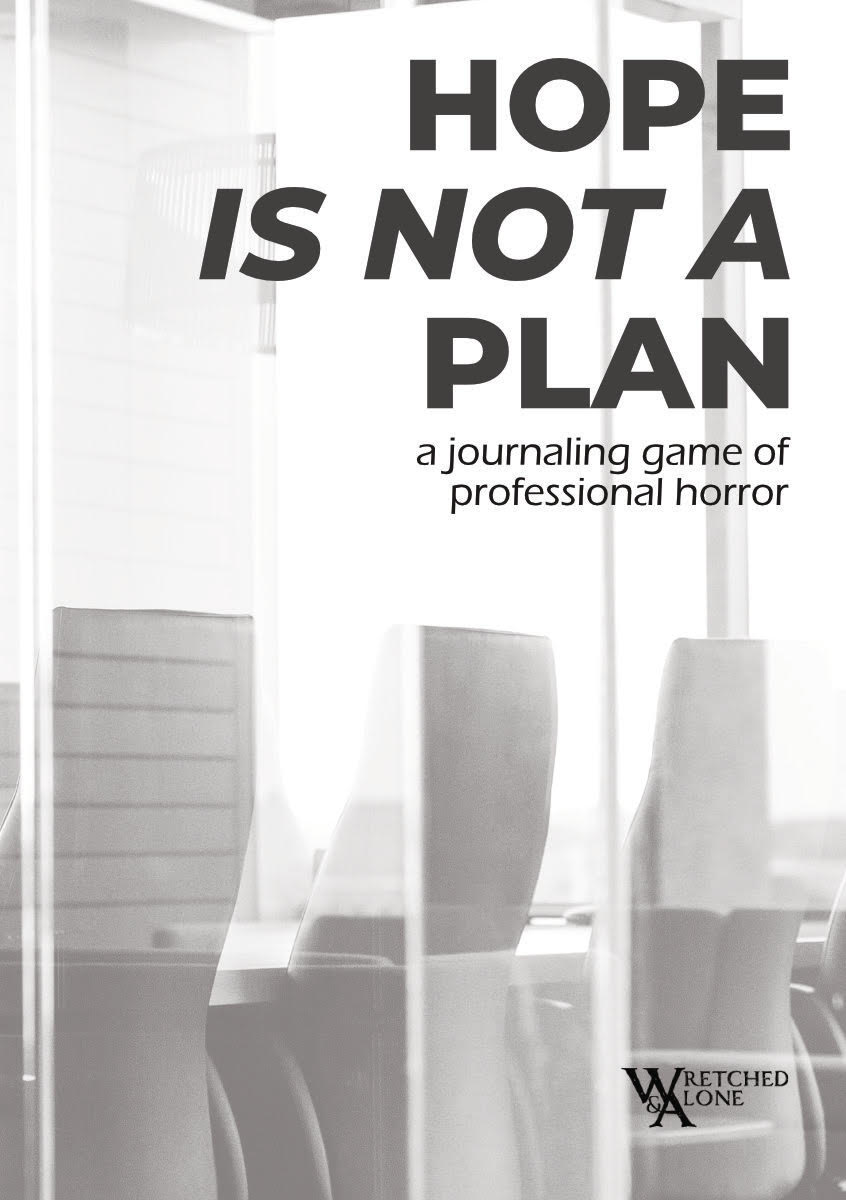
Hope is Not a Plan
check_circle In Stock


Hope is Not a Plan
Shipping Information
expand_more
Orders typically ship within 24-48 hours after being placed, business days only Monday - Friday. If you place an order on Friday, Saturday, or Sunday then it will not ship until the following business week. Shirts and Hoodies will ship separately.
We use USPS, UPS and DHL. Rates are based on current service rates and are subject to change. For the majority of items we ship in deluxe padded bubble mailers with bags and boards for added protection or with cardboard book mailers. Larger orders will be finely packed as well. We care about the product getting to you safe and secure.
Hope is Not a Plan
A solo journaling game in which you will document your attempts to deliver a very complicated engineering project on time and under budget. You hope for success, but you will most likely fail, damage your reputation, and lose your job. So it goes.
A Game of Conflicting Responsibilities
Your company has entrusted you with millions of dollars of other people's money. They expect you to please the client and turn a profit at the same time. On paper, it looks pretty straightforward. However, your client, your team, your company leadership, and your friends and family also have needs which complicate the execution of the project. You might even occasionally want to take care of yourself. Good luck!
Content Warning
Your character in this journaling game will never be at risk of physical harm. However, Hope is not a Plan includes themes of stress, professional disappointment, failure to meet obligations to friends and family, getting blamed for things you have no control over, and job loss.
What is a "solo journaling game"?
This is a role-playing game, but you play by yourself, not with a group at a table. The game will present you with various situations and you write about how you think the story unfolds. Your character is a project manager for a complex engineering project - but it doesn't have to be you. The game has some explanations about the various types of engineering and how they fit together in big projects. Feel free to make up the parts you don't know.
How do you play?
You use a deck of cards, a 6-sided die, and a tumbling block tower (the game Jenga™ is an example) as your tools for the game. You'll also need some markers to track milestones (coins, poker chips, something like that) and a way to keep your notes. (If you don't have a tumbling block tower game available, don't worry, there are alternates suggested.)
The tower of blocks represents your mental capacity to handle stress and keep all the tasks in your project straight. The 6-sided die tells you how many cards to draw for a turn. The cards point to the writing prompts in the book, which describe events that come up during your project. Many of the prompts say to "pull from the tower" which means pull a block from the lower part of your tower and balance it on top. Some die rolls will let you achieve milestones in your project. If the tower falls before you deliver the project, you lose.
"If the tower falls, you lose" is the key game mechanic for the Wretched & Alone games. There is a New Game+ mode added, where each time you start again, you can remove troublesome cards from the deck, so with experience it gets easier to win, just like real project management.
Created by Steve Wright.
30 pages, A5 size, staple bound zine, black and white. PDF included.

Format: PDF Only

